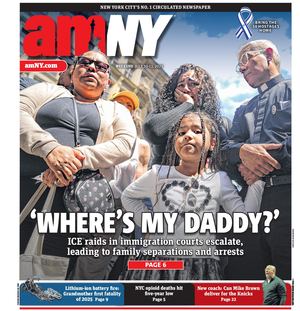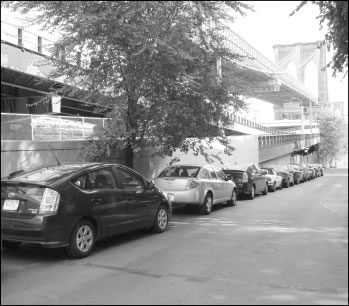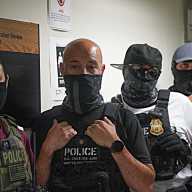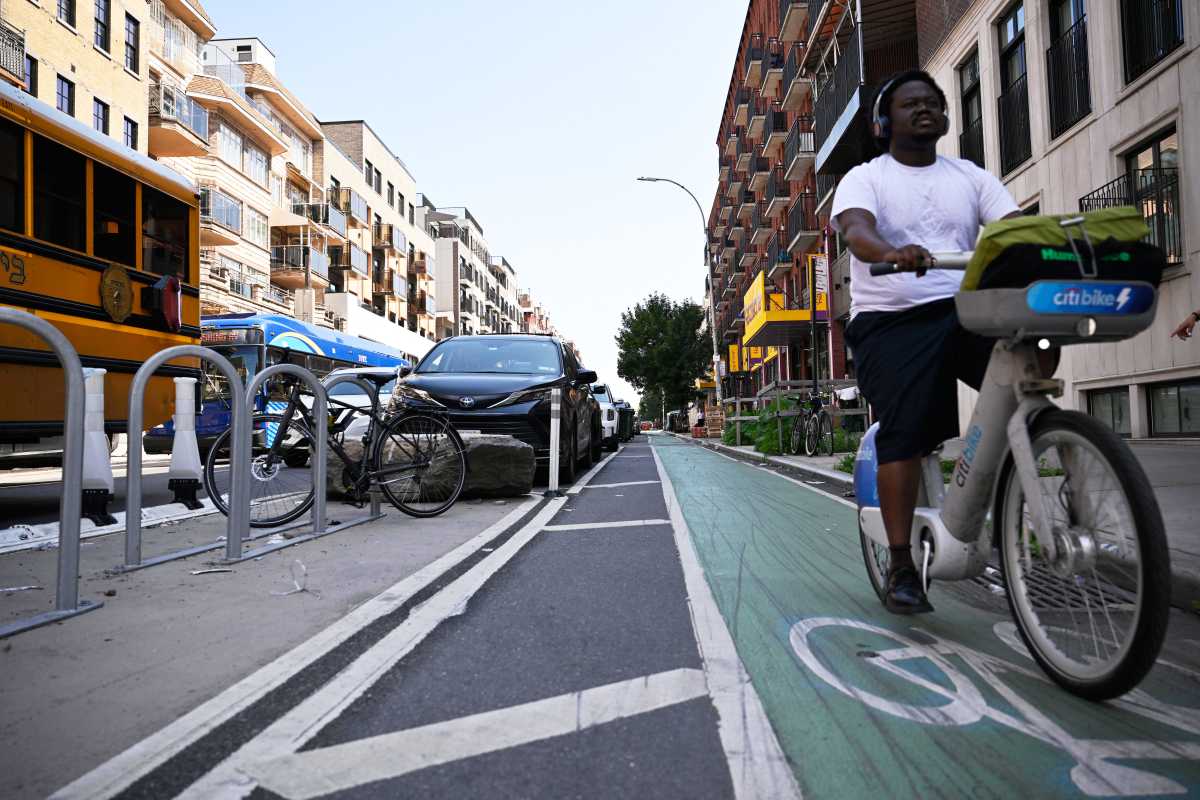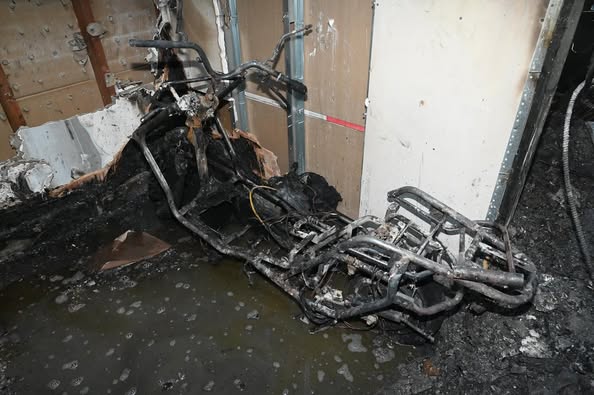By Julie Shapiro
The city is taking aim at the government cars that fill Lower Manhattan’s streets.
Under a pilot program starting early next year, 57 city Dept. of Transportation workers will lose their free cars and will have to use a shared pool of 25 cars instead.
Downtown residents who have long complained about the rampant abuse of government vehicles — which take up legal parking spots in front of businesses, clogs loading zones and often park illegally — called the D.O.T.’s yearlong pilot a step in the right direction.
“It’s long overdue,” said Jan Lee, a Chinatown business owner and a leader in local efforts against government parking abuses.
Lee raised the idea of government car shares at a meeting with city officials several months ago, based on the success of similar programs in Washington, D.C. and other cities. Lee said sharing cars would remove the sense of entitlement some city workers feel when they have their own car. And having a computerized reservation system should dissuade workers from using the cars for non-work purposes, he said.
“Once we utilize technology, it’s very hard to cheat,” Lee said.
The pilot program should free up dozens of parking spaces Downtown, since the 25 shared cars will be stored off-street, while the 57 existing cars are mostly parked on streets in the Seaport and Financial District. D.O.T. workers will use the shared cars to inspect city infrastructure and attend meetings.
Steve Weber, assistant commissioner for strategic planning at the D.O.T., said the impetus for the pilot program was a study released last year, which showed that government placards take up 43 percent of all legal spaces in Lower Manhattan.
“We saw the scale of the impact,” Weber said in a telephone interview. “We’ve been doing everything we can to reduce that impact.”
When the pilot starts early next year, D.O.T. will reduce its Lower Manhattan car footprint by nearly 30 percent. If the program succeeds in saving money and reducing congestion, other city agencies could follow suit.
Weber called the pilot “a big win for the community,” because in addition to freeing up parking spaces, the 25 shared cars will be available for local residents to rent at night and on the weekends, similar to the Zipcar rental program, when the D.O.T. is not using them.
This is not the first time the city has tried to cut back on its employees’ car privileges. Mayor Michael Bloomberg announced a citywide 20 percent cut in parking placards last year, which reduced D.O.T.’s placards to 535.
Wiley Norvell, spokesperson for Transportation Alternatives, said the car-share pilot sounded like a good idea but he wanted to see data on how much it actually reduced traffic. Norvell would prefer that the city focus on reducing car use by adopting bike-share programs and encouraging mass transit. He also said the city needs to do a better job of ticketing government cars that park illegally, which now often get a free pass.
“You can’t get complacent with it,” Norvell said. “You still have to see if there are further reductions that can be made.”
Tracy Spinney, a Seaport resident who has spoken out on parking issues, called the car share “a fantastic idea.”
“If they manage to share, as any good company would do, they would save people frustration and save city funds that could better be spent on education and healthcare,” Spinney said.
He frequently sees government cars taking up spots on Dover St., Water St. and Peck Slip. Often, city workers drive in with their own cars, find the government car they’ve parked in the Seaport and swap the cars for the day — a trick that guarantees them a parking spot at all times, Spinney said.
Spinney said city cars on Dover St. don’t follow the alternate-side rules, so the Sanitation Dept. is never able to get a street sweeper through. Instead, Spinney said Sanitation workers show up with brooms to manually sweep the street, since that’s the only way to get it done.
At the Harbour Cafe on Peck Slip, owner Anita Gomes said the scarcity of free or metered parking spaces discourages people from stopping in for a meal. The only parking option is a lot or a garage, which is too expensive, she said.
“They cannot pay $30 parking to come here,” Gomes said. “That’s more than a meal, and they’re just going to be here half an hour.”
Fabian Duran, manager of the Bridge Cafe on Dover St., also said the lack of parking hurts business. Government cars regularly sit untouched for days or weeks on the streets around the restaurant, he said.
Even a handicapped license plate — which Duran uses because he lost part of his left leg in a car accident eight years ago — does not make it much easier to get a spot.
“To find parking here is ridiculous,” Duran said.
Julie@DowntownExpress.com
